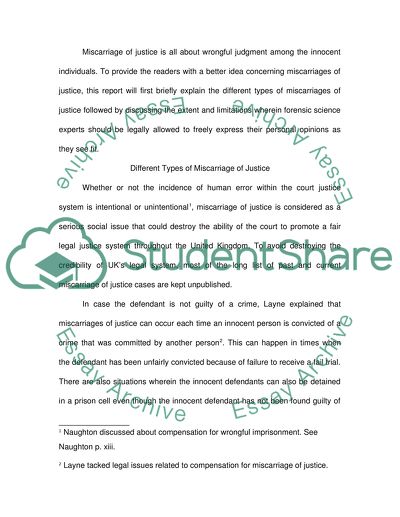Cite this document
(“Forensic science expert witnesses should be free to express their Essay”, n.d.)
Retrieved from https://studentshare.org/law/1423057-forensic-science-expert-witnesses-should-be-free-to-express-their-opinion-as-they-see-fit
Retrieved from https://studentshare.org/law/1423057-forensic-science-expert-witnesses-should-be-free-to-express-their-opinion-as-they-see-fit
(Forensic Science Expert Witnesses Should Be Free to Express Their Essay)
https://studentshare.org/law/1423057-forensic-science-expert-witnesses-should-be-free-to-express-their-opinion-as-they-see-fit.
https://studentshare.org/law/1423057-forensic-science-expert-witnesses-should-be-free-to-express-their-opinion-as-they-see-fit.
“Forensic Science Expert Witnesses Should Be Free to Express Their Essay”, n.d. https://studentshare.org/law/1423057-forensic-science-expert-witnesses-should-be-free-to-express-their-opinion-as-they-see-fit.


